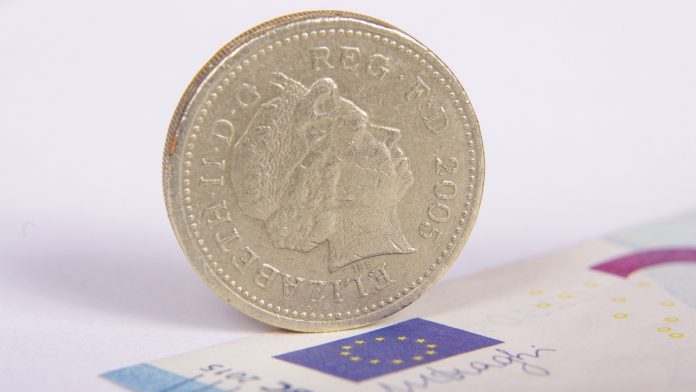Trump’s promise of a post Brexit trade deal and disappointing eurozone data helped lift the pound versus the euro on Tuesday. The pound euro exchange rate rallied to a high of €1.1297.
| What do these figures mean? |
|---|
| When measuring the value of a pair of currencies, one set equals 1 unit and the other shows the current equivalent. As the market moves, the amount will vary from minute to minute. If the euro amount increases in this pairing, it’s positive for the pound. Or, if you were looking at it the other way around:1 EUR = 0.87271 GBPIn this example, €1 is equivalent to approximately £0.87. This measures the euro’s worth versus the British pound. If the sterling number gets larger, it’s good news for the euro. |
Whilst President Trump is placing trade tariffs on the likes of China, Mexico and possibly India, he seemed keen for a trade deal with the UK. On his state trip to the UK, the President of the United States said that he was optimistic of a “phenomenal” trade deal between the UK and the US, should the UK break free from the European Union. In other words, in the case of a no deal Brexit, the US would be keen to do a trade deal with the UK. This is the clearest that Trump has been over his intentions for trade with the UK post Brexit.
With the probability of a no deal Brexit increasing, the prospect of a trade deal with the US gave a glimmer of hope to pound traders as it would offer support to the UK economy at a difficult time..
Today pound will look towards the service sector pmi data. Analysts are expecting activity in the service sector to remain close to a standstill in May at 50.6 as Brexit uncertainty paralyses business decisions. 50 separates expansion from contraction. The service sector is by far the most dominant sector in the UK economy so weakness here could send the pound lower.
| Why does poor economic data drag on a country’s currency? |
|---|
| Slowing economic indicators point to a slowing economy. Weak economies have weaker currencies because institutions look to reduce investments in countries where growth prospects are low and then transfer money to countries with higher growth prospects. These institutions sell out of their investment and the local currency, thus increasing supply of the currency and pushing down the money’s worth. So, when a country or region has poor economic news, the value of the currency tends to fall. |
Weak Inflation Sends Euro Lower
The euro trended lower in the previous session as investors digested weak inflation data for the bloc. The consumer price index increased a lacklustre 1.2% year on year, well down from 1.7% in April and short of the 1.3% forecast by analysts. The drop-in headline inflation was matched by a drop in core inflation, which doesn’t include the more volatile items such as food and fuel. The reading is likely to spook some ECB policy makers.
With inflation moving further away from the European Central Bank’s 2% target, the ECB will be under pressure to increase stimulus in the region when it meets for its 2-day policy meeting later today. The policy announcement is due on Thursday. A move towards easing and a more dovish ECB could send the euro lower.
| Why do raised interest rates boost a currency’s value? |
|---|
| Interest rates are key to understanding exchange rate movements. Those who have large sums of money to invest want the highest return on their investments. Higher interest rate environments tend to offer higher yields. So, if the interest rate or at least the interest rate expectation of a country is relatively higher compared to another, then it attracts more foreign capital investment. Large corporations and investors need local currency to invest. More local currency used then boosts the demand of that currency, pushing the value higher. |
This publication is provided for general information purposes only and is not intended to cover every aspect of the topics with which it deals. It is not intended to amount to advice on which you should rely. You must obtain professional or specialist advice before taking, or refraining from, any action on the basis of the content in this publication. The information in this publication does not constitute legal, tax or other professional advice from TransferWise Inc., Currency Live or its affiliates. Prior results do not guarantee a similar outcome. We make no representations, warranties or guarantees, whether express or implied, that the content in the publication is accurate, complete or up to date. Consult our risk warning page for more details.
This article was initially published on TransferWise.com from the same author. The content at Currency Live is the sole opinion of the authors and in no way reflects the views of TransferWise Inc.





